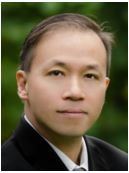Date
Location
Research 1: R1-101
Description
We live in exciting times where new technology convergences are emerging. We see the next evolution of semiconductor technology amalgamates with emerging applications of IoT, machine learning, precision medicine, and wearables. Underlying these verticals are exciting innovations in material, devices and, systems at different scales and levels. The overarching objective is to improve functionality, performance, form factor, and cost of new electronics. From semiconductor technologies to wearable technologies, new materials and their novel integration are enabling novel electronics. In this talk, I will discuss some of the material trends in cutting-edge semiconductor technologies base on my work at IBM and IMEC and continue to describe research interests at National University Of Singapore in hybrid flexible electronics for wearables, and the role of advanced materials can play. I will describe some of our recent work on ultra-thin semiconductor devices for flexible optoelectronic application, wearable health monitors that combine rigid semiconductor signal processing, soft materials, and, liquid conductors. The combination of hard and soft not only allow for electronics in new package form factors, but it also bring new opportunities to integrate functionality into the packaging. For example, we will look at the functional composites of such soft material as a energy harvesters, and even RF components and antennas.
Biography: Biography: Aaron Thean is a Professor of Electrical and Computer Engineering at the National University of Singapore (NUS) and the Director at the Office of Deputy President (Research Technology). He is also the Director of the University’s new research program on Hybrid Integrated Flexible Electronics (HiFES), comprises of 16 multidisciplinary research teams. Prior to joining NUS in 2016, Aaron served as IMEC’s Vice President of Logic Technologies where he led IMEC’s International path-finding research consortium with industry partners that included Intel, Samsung, TSMC, Globalfoundries, Qualcomm, Apple, and Applied Materials. Before moving to Europe, he had been with several US technology companies like Qualcomm, IBM, and Motorola. He had worked on technologies for System-On-Chip to advanced process technologies. At IBM, he led his team to develop the first foundry-compatible Gate-First High-k MetalGate Low-Power bulk CMOS technologies at 32nm/28nm. It enabled some of the most successful smart mobile devices in production like the iphone 5 and Apple watch. Aaron graduated from the University of Illinois at Champaign-Urbana, USA, where he received his B.Sc. (Highest Honors & Graduated as Edmund J. James’ Scholar), M.Sc., and Ph.D. degrees in Electrical Engineering. He has published over 300 technical papers and holds more than 50 U.S. patents for inventions in the field of advanced electronics. He also serves as editor for the IEEE Electron device letters. He returned to Singapore in 2016 after 23 years abroad, to pursue a career in academia with NUS.
Presenter

Aaron Thean, Ph.D
Department of Electrical &
Computer Engineering
National University of
Singapore
Contact
Debashis Chanda NanoScience Technology Center Debashis.Chanda@ucf.edu